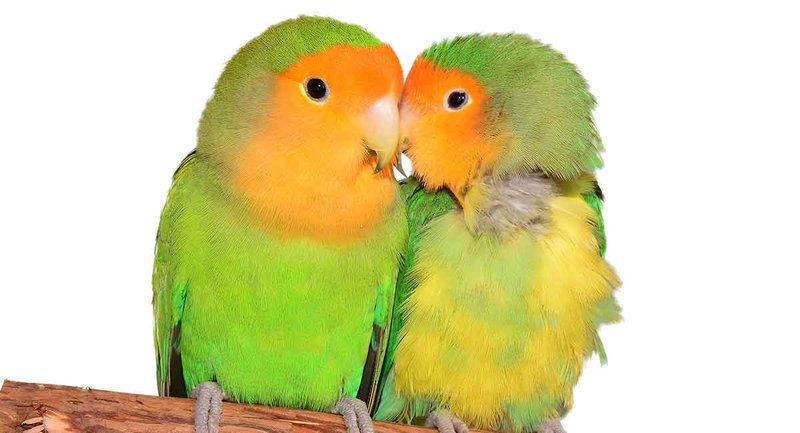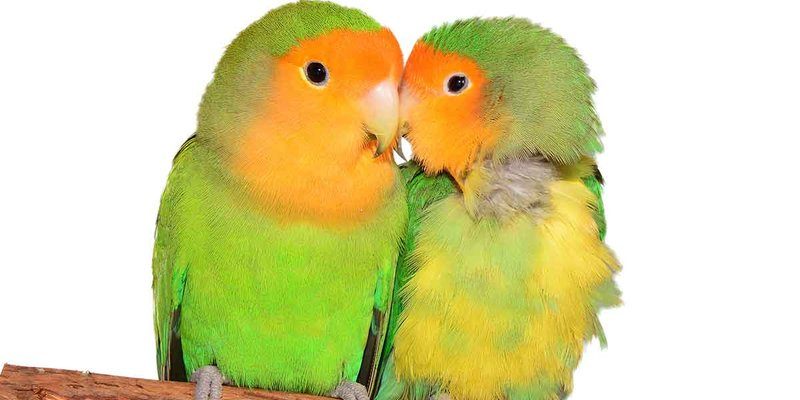
So, what exactly do you need to consider? This isn’t just about ensuring your future feathered friends are happy and healthy—but also about making sure you’re on the right side of the law. Today, we’ll dive deep into the ins and outs of lovebird ownership, touching on legal guidelines, permits, and responsibilities that every prospective lovebird owner should know.
Understanding Local Laws and Regulations
Before you even think about bringing a lovebird home, it’s crucial to do your homework on local laws. Regulations can vary widely depending on where you live. Some places may require permits for keeping certain types of birds, while others may have restrictions on the number of pets you can own.
Here’s the deal: call your local animal control or visit their website. They will have the most accurate and up-to-date information. It’s like checking the weather before an outdoor event; you want to be prepared! You might discover that certain bird species are not allowed or that you need to register them.
Additionally, ** zoning laws** can impact your ability to keep lovebirds. In some residential areas, there may be rules about noise levels or how many pets you’re allowed. Remember, your lovebirds might be chirpy and delightful to you, but not everyone in your neighborhood feels the same way.
Permits and Licenses
In some areas, owning lovebirds might require a special permit or license. It’s easy to overlook this step, but skipping it could lead to fines or even confiscation of your pets. Think of it like needing a fishing license before casting your line—a necessary step for responsible ownership.
You may need to provide proof that you’re capable of caring for these birds. This might include information about your living conditions, an understanding of their dietary needs, and a willingness to attend to their social and emotional well-being. That’s right, lovebirds are social creatures and need more than just a cage and food to thrive!
While it may seem like red tape, these regulations exist to protect both the animals and the wider community. You might be thinking, “Is it really worth the hassle?” Absolutely! Having the right permits not only keeps you compliant but also enhances your credibility as a responsible pet owner.
Species-Specific Regulations
Did you know that the species of lovebird you choose may also influence legal requirements? There are several types of lovebirds out there, and some may be considered more exotic than others. As a general rule, exotic pets often come with stricter regulations.
For instance, the popular Peach-faced Lovebird is generally easier to keep, while some rarer species may require additional paperwork. If you’re eyeing a specific type, it’s worth looking into whether there are any special laws related to that species. You wouldn’t want to fall in love with a rare bird only to find out it’s illegal to own in your area.
Moreover, if you ever plan to travel with your lovebirds or bring new ones into your home from another state or country, be aware that there may be additional regulations. Some states have quarantine laws to prevent the spread of disease. This is essential to keep not just your birds safe, but the larger avian populations as well.
Animal Welfare Laws
Animal welfare laws are there to ensure that all pets, including lovebirds, are treated humanely. This means providing adequate housing, food, and care. You might be wondering, “What does that look like for lovebirds?” Here’s the thing: it’s not just about the basic necessities.
You need to think about their mental and emotional well-being too. Lovebirds are social creatures, so keeping them in pairs is often recommended. If you isolate them, you could face potential legal repercussions under animal cruelty laws. No one wants to be “that person” who neglects their pets!
This means providing a spacious aviary or a roomy cage, fresh food daily, and toys for mental stimulation. Regular vet check-ups are also crucial. If you’re unsure about what constitutes adequate care, local animal shelters or avian vets offer resources that can guide you.
Invasive Species Laws
Some lovebird species may fall under invasive species laws in particular regions. Invasive species are non-native animals or plants that can cause harm to local ecosystems. If a certain type of lovebird were to escape and begin populating in the wild, it could upset the local balance.
It’s essential to research whether the species you’re considering is classified as invasive in your area. If it is, you might face strict limitations on ownership, or you may need to provide proof that you can keep the birds secure to prevent escape.
Failure to comply with these laws can lead to significant fines or even criminal charges. You don’t want your dream of having lovebirds to take a nosedive because you didn’t delve into this aspect!
Health and Safety Regulations
Keeping lovebirds also means being aware of health and safety regulations, especially during a pandemic. For example, some regulations may require you to quarantine new birds for a certain period before introducing them to your existing flock. This helps prevent the spread of diseases.
Fostering a clean environment is part of legal compliance too. Regular cleaning of cages, food dishes, and toys is not just good practice—it’s often mandated by law to keep your birds healthy. And keeping your lovebirds well-groomed and healthy minimizes the risk of them carrying any contagious ailments that could affect other pets or even humans.
Speaking of health, it’s wise to stay updated on avian diseases prevalent in your area. This knowledge may not be directly a legal requirement, but it sure could keep you out of trouble down the road!
Community and Association Guidelines
In addition to local laws, there may be community guidelines or rules from associations like the American Bird Association. These guidelines often provide best practices for bird ownership that go beyond primary legal requirements.
Consider joining a local bird club or online community—they can offer invaluable insights into responsible pet ownership, including how to navigate local regulations. It’s like having a roadmap before embarking on a road trip; it can save you from getting lost in the details!
These communities often share tips and best practices for husbandry, breeding, and health care. Involving yourself in such networks not only enriches your lovebird-keeping experience but also helps you remain compliant with any ongoing changes in laws or community standards.
Final Thoughts: Being a Responsible Lovebird Owner
Owning lovebirds can be a deeply rewarding experience, but it comes with a responsibility to understand and comply with legal guidelines. By taking the time to research local laws, permits, and welfare regulations, you’re not just following the rules; you’re setting a great example of what it means to be a responsible pet owner.
Remember, these little birds rely on you for everything, from their physical health to their happiness. So, before you bring home that adorable pair of lovebirds, ensure you’re well-informed and ready to give them the best care possible. In the end, your lovebirds aren’t just pets—they’re family, and being a good guardian ensures they can thrive in your home for years to come.

